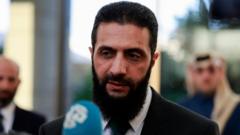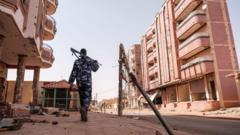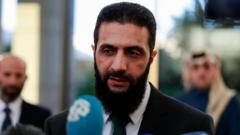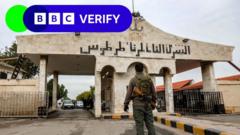In a recent interview, Syrian rebel leader Ahmed al-Sharaa indicated that holding new elections post-Assad could take up to four years, emphasizing the necessity for legal reforms and public trust in the new leadership.
Timeline for New Elections in Syria Extended by Rebel Leader

Timeline for New Elections in Syria Extended by Rebel Leader
Ahmed al-Sharaa discusses the challenges ahead in Syria, predicting lengthy processes for elections and constitutional drafting.
In a pivotal broadcast interview with Saudi state media, Syrian rebel leader Ahmed al-Sharaa provided a lengthy forecast for the country’s political future, suggesting that the process to hold new elections could extend up to four years. This statement marks the first timeline offer following his group's success in ousting former President Bashar al-Assad.
Al-Sharaa, who leads the Hayat Tahrir al-Sham (HTS), noted that drafting a new constitution might take up to three years, with significant improvements to public services potentially a year away. He emphasized that Syria’s legal framework needs reconstruction and a comprehensive population census must be conducted to facilitate legitimate elections.
Known previously as Abu Mohammed al-Jolani, Sharaa's leadership arises amid uncertainty regarding HTS's governance approach in Syria's diverse demographic landscape. Formerly a jihadist faction advocating violence for Islamic governance, HTS has since distanced itself from such ideologies, preparing for a transition in leadership structure.
At a forthcoming national dialogue conference, Sharaa hinted at the dissolution of HTS, although specifics remain scarce. This conference will test if the new authorities can truly unify a nation fractured by 13 years of brutal civil war. Responding to criticism regarding the transitional government, he insisted that current appointments are critical for inclusivity.
The diverse population of Syria encompasses various ethnic and religious groups, including Kurds, Christians, Druze, and Alawites. HTS has vowed to uphold the rights of these minorities, marking a noteworthy shift in rhetoric.
In recent developments, the Syrian Observatory for Human Rights reported almost 300 arrests of Assad loyalists in a crackdown, including informants and former regime fighters, with some operations carried out in cooperation with local communities. State media corroborated these reports, indicating the detention of militia members along with the seizure of weapons.




















